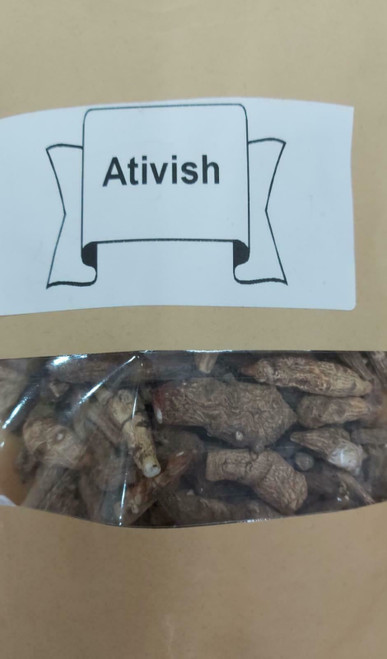Majuphal oak gall majoophal manjakani - QUERCUS INFECTORIA 50gm
Quercus infectoria, commonly known as "Majuphal" or "gall oak," is known for its medicinal properties, particularly due to the galls produced on its twigs and leaves by certain insects. These galls are rich in tannins and other bioactive compounds, making them valuable in traditional medicine. Here's a detailed overview of Majuphal extract:
Health Benefits of Majuphal Extract
-
Astringent Properties:
- Skin Health: Majuphal extract is used for its astringent properties to treat various skin conditions like acne, eczema, and wounds. It helps in tightening tissues and reducing inflammation.
- Oral Health: It is used in traditional remedies for treating mouth ulcers, gingivitis, and other oral infections due to its astringent and antibacterial properties.
-
Antimicrobial Effects:
- Infection Prevention: The extract exhibits strong antimicrobial properties, making it effective against bacterial, fungal, and viral infections. It can help in treating infections like diarrhea and dysentery.
-
Anti-inflammatory Properties:
- Reduces Inflammation: Majuphal extract is used to reduce inflammation and is beneficial in conditions like arthritis and other inflammatory disorders.
-
Gastrointestinal Health:
- Digestive Aid: It helps in treating digestive issues such as diarrhea and dysentery by reducing intestinal inflammation and acting as an antimicrobial agent.
- Ulcer Treatment: The astringent properties help in treating ulcers and protecting the gastrointestinal lining.
-
Hemostatic Properties:
- Stops Bleeding: Majuphal is traditionally used to stop bleeding from minor cuts, wounds, and hemorrhoids due to its hemostatic properties.
-
Anti-diabetic Effects:
- Blood Sugar Regulation: Some studies suggest that Majuphal extract may help in regulating blood sugar levels, making it beneficial for managing diabetes.
Uses of Majuphal Extract
-
Topical Applications:
- Creams and Ointments: Used in topical formulations for treating skin conditions, wounds, and infections.
- Mouthwashes and Gargles: Employed in oral care products to treat mouth ulcers, sore throats, and gum infections.
-
Internal Use:
- Capsules and Tablets: Available in supplement form for treating gastrointestinal issues and as an anti-inflammatory agent.
- Herbal Teas: The extract can be used in teas for its digestive and anti-inflammatory benefits.
Preparation and Dosage
- Recommended Dosage: The dosage of Majuphal extract can vary based on the form and purpose of use. Commonly, 250-500 mg of the extract is taken in capsule or tablet form. For topical applications, follow the instructions on the product label or consult a healthcare provider.
- Usage: It can be applied directly to the skin for topical issues or taken internally as directed.
Safety and Precautions
- Consult Healthcare Provider: It is important to consult a healthcare provider before using Majuphal extract, especially if you have pre-existing health conditions or are taking other medications.
- Pregnancy and Breastfeeding: Pregnant and breastfeeding women should avoid using Majuphal extract due to insufficient safety data.
- Potential Side Effects: While generally considered safe, some individuals might experience allergic reactions or gastrointestinal discomfort. Discontinue use and seek medical advice if adverse reactions occur.
- Interactions with Medications: Majuphal extract may interact with certain medications. Always consult with a healthcare provider to ensure it is safe to use alongside other treatments.
Conclusion
Majuphal extract (Quercus infectoria) offers a variety of health benefits, particularly for skin health, oral health, and digestive issues due to its astringent, antimicrobial, and anti-inflammatory properties. It can be used both topically and internally, making it a versatile addition to traditional and modern herbal remedies. As with any supplement, responsible usage and consultation with a healthcare provider are essential to ensure safety and efficacy.








